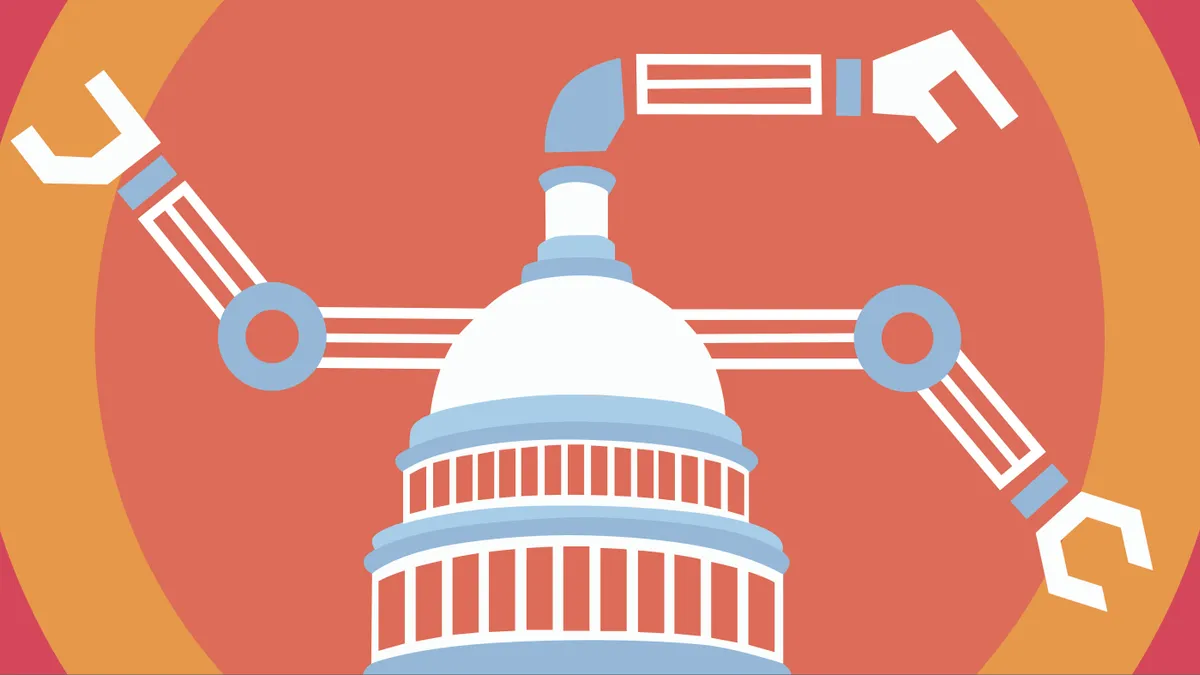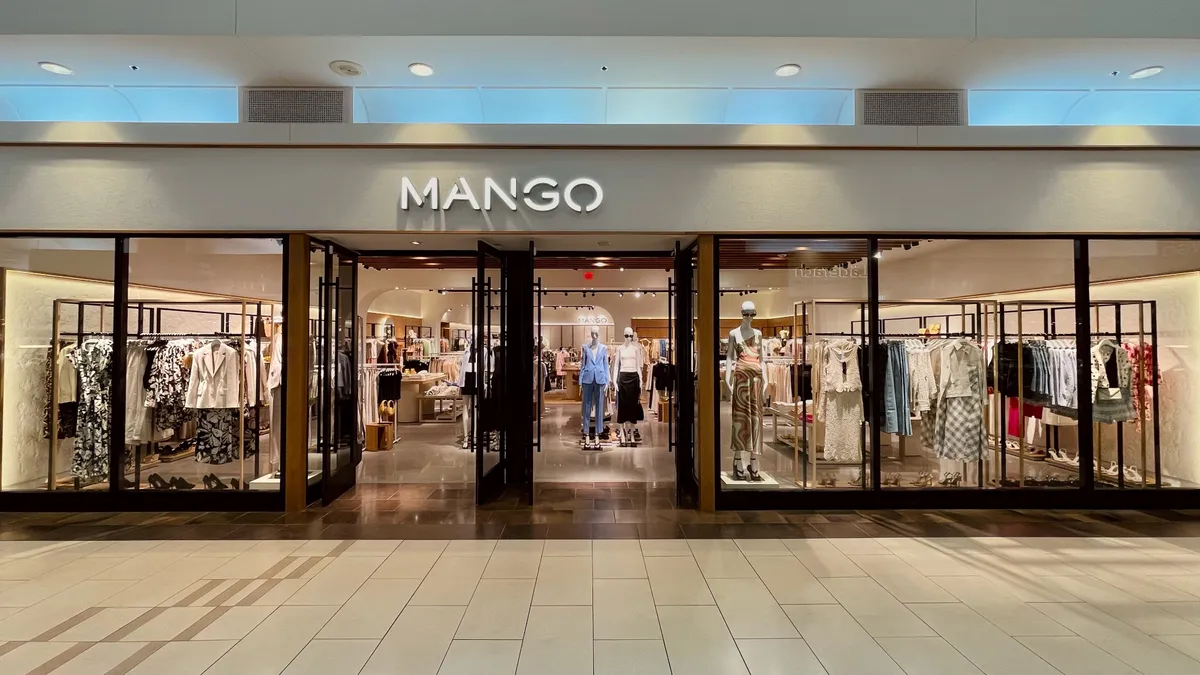Editor's Note: The following is a weekly column covering technology and regulation within the supply chain and logistics industries.
The supply chain industry is optimistic about tax law
The Institute for Supply Chain Management (ISM) released its January 2018 report on manufacturing, announcing that the purchasing managers index dropped from 59.3% to 59.1% in January. But the report also said that 14 out of the 18 different manufacturing industries reported growth in January, and maintain positive outlooks for Q1 2018.
One common response from manufacturers: Potential savings from the GOP's tax cuts are expected to boost Q1 and 2018 overall. That's a common theme in the logistics industry as well, highlighted in C.H. Robinson's and UPS' rosy, forward-looking Q4 2017 earnings reports.
To top it all off, the Fed probably isn't going to raise interest rates like originally expected, according to Bloomberg.
Freight liked Trump's controversial SOTU address, but...
Despite heavy criticism from fellow politicians, Trump scored well with the various modes of freight: the American Trucking Associations (ATA) and the American Association of Port Authorities (AAPA) both emailed positive responses to Supply Chain Dive.
"America’s truckers commend President Trump for making infrastructure investment a priority of his presidency," the ATA's statement reads. "We join the president in calling on Congress to work with the Administration on an infrastructure package that raises real revenue to meet the enormity of this challenge. Just as we did on tax reform, truckers are ready to help carry a solution forward."
The ATA then made another plug for its own proposal to reinvest in the Build America Fund, which was not mentioned in the leaked infrastructure bill outline.
The AAPA also praised Trump's commitment to funding American infrastructure, reiterating the importance of solid infrastructure for transporting goods along the supply chain, but then said that a "fair trade agreement is critical," while not mentioning NAFTA directly.
"America’s truckers commend President Trump for making infrastructure investment a priority of his presidency."

American Trucking Associations
The American Association of Railroads (AAR) was not so subtle, instead issuing a direct call to not "abandon" NAFTA, which the AAR believes is essential to the rail industry in the age of global supply chains. The AAR called NAFTA "one of the most successful trade agreements ever negotiated," again suggesting some urgency with regard to the turbulent trade talks of late.
The statements suggest that some of the freight industries are pleased with the GOP's tax law and commitment to fixing infrastructure, but because they're enjoying these benefits, they're afraid to voice their concerns about NAFTA too loudly.
Trucking, rail and ocean shipping know they need a solid trade agreement with neighboring nations, or else American supply chains will suffer.
Distilling the tech hype
Supply Chain Dive continues to investigate the blockchain trend; it's buzzy, and much of the internet decries the tech as pure hype. And yet, the supply chain industry tells us it's the future.
So we decided to go straight to the creator of blockchain, IBM, and ask, is the tech actually being implemented by supply chains? Is it going to help anybody?
For Bjorn Kutz, program director of Watson IoT Solutions and Blockchain at IBM, "The hardest part about blockchain is the hammer looking for the nail." In order to make sure it's used correctly within business operations, he said, you need have the "right people" in the room.
"The ones that are doing it better, they have a high-level focus, like a Chief Innovation Officer or technology leader in the company that’s looking holistically at how to improve the business," Kutz told Supply Chain Dive. "We see that in IoT in general, companies that use analytics that use a holistic approach to IT, are typically top-performing customers. They out perform their competition. They have a top-down focus to drive the innovation."
As for use cases in supply chain, he says, there are many. One in particular he highlighted was how blockchain can streamline the cold chain.
"Where we typically see our customers starting first is the cold chain, refrigerated goods, food," he said.
The cold chain often struggles with monitoring perishable products, so using blockchain to keep a more detailed record of shipments and check-ins, as well as a self-regulated monitoring tool, could have huge implications for the industry.
"If business can align its goals to the data it's trying to capture, then that’s fantastic, and it’s an excellent use of technology. "

James Gellert
CEO, RapidRatings
In fact, Kutz's response to blockchain controversy dovetails with another conversation with RapidRatings CEO James Gellert. (RapidRatings is a data and tech company that consults other companies on how best to manage and mitigate supply chain risk.)
"I think technologies are beneficial when the product of them is used efficiently," Gellert told Supply Chain Dive. "If business can align its goals to the data it's trying to capture, then that’s fantastic, and it’s an excellent use of technology. What we find is there are technologies out there in search of applications, and companies aren't necessarily geared internally yet to use that technology in an effective way."
So the big takeaway? Blockchain can be a real boon to supply chains, but if you're serious about it, you've got to take a top-down approach.
In case you missed it
Nikola is moving in on Tesla's space by planning a manufacturing plant in Arizona to produce its announced hydrogen-electric semi truck. According to the press release, Nikola already has 8,000 preorders of its hydrogen-electric semis.
Speaking of Tesla, Bloomberg dropped a bomb yesterday morning with a story sourced anonymously announcing that Tesla will sell solar products at 800 Home Depot locations in lieu of a new partnership between the tech company and the retailer.
That's unprecedented for Tesla, a company that has historically foregone middlemen, like dealerships for its luxury cars. While neither Tesla nor Home Depot have confirmed the story, it's rich new ground for Tesla: the company is still struggling to become profitable and since CEO Elon Musk's salary is tied to the company's success, this move could be interpreted as an attempt to ensure financial success as the Model 3 snafu continues to sort itself out.
In other news, Amazon's got a patent for wristbands that track warehouse workers' movements, and Walmart is reportedly in talks to nab a minority stake in the Indian e-commerce company, Flipkart.
The Reaction
Business is in a good mood, especially after a strong holiday season, and says the new tax law is a big reason for optimism, but it's way too soon to tell how the law will actually affect the supply chain industry in 2018. Not only that, if the U.S. withdraws from NAFTA, supply chains could lose more than what they may gain from a tax cut.
We also don't have a detailed infrastructure bill yet — so while groups like the ATA are overwhelmingly supportive of the GOP's dedication to producing a bill, the final bill could turn out to be not quite as exciting as the industry wants it to be.
And to wrap it up, it seems that right now blockchain is more a source of division between skeptics and visionaries than it is a "game-changer." That said, the most important thing to remember is that lead times are shorter, turnarounds are faster, and consumers' taste change lightning fast — and blockchain could help a company keep up.






















